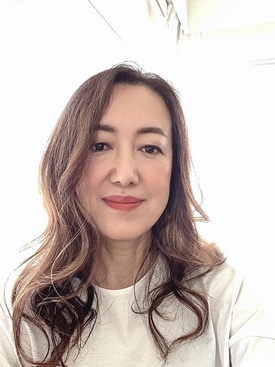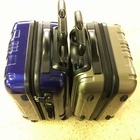When I went to the US, I was determined to never return to Japan.
Akiko Shimizu is a feng shui consultant who has been active in the US and Japan since the 1990s. Her original job was in IT. After working in Germany from Japan, she has been living in the US since 1991. However, she now lives mainly in Japan, occasionally returning to her home in the suburbs of Los Angeles. She first came to the US at the age of 19 and felt the freedom and possibilities there, realizing her wish to live there. In a Zoom interview, we asked her why she decided to base herself back in Japan and what she has seen while traveling back and forth between Japan and the US.
"When I was young, I felt like a black sheep in Japan. You have to fit in with everyone else, and even if a woman has talent, she isn't promoted in this male-dominated society. At 10 p.m., while the other men were still working, I was told to go home. But deep down, I wanted to work more. But when I came to America, I was able to find a place where I could live as myself. Being a woman and my age didn't matter."
When he first moved to the U.S., he worked in the IT industry at a Japanese company. After obtaining permanent residency and going through many twists and turns, he worked as an IT consultant for a Japanese manufacturer in the suburbs of Los Angeles from 2001 until 2019. He became interested in feng shui and started learning about it, which led to an increase in the amount of work he did as a side job, reading and teaching feng shui.
"I started coming to Japan in 2003 to hold feng shui seminars. At that time, I was coming about twice a year. I had been away from Japan for more than 10 years, so I needed to understand the current situation in Japan and I felt that I needed to make steady progress in developing the market, so I continued to come to Japan every year, even though I was in the red on airfare and accommodation costs."
In 2012, he finally settled in Tokyo. "Around that time, I was going to Tokyo once every two months to give feng shui classes. I felt more at ease having a home instead of living in a hotel, and I began to think that Japan was a good place to be because I had more work to do domestically and met many new people. When I moved to America, I was determined never to return to Japan."
In 2020, due to the effects of COVID-19, he was unable to travel freely between Japan and the United States, so he spent most of his time in Japan except for one trip to Orange County to process the sale of his home.
If they withdraw, they need to build a base in Japan
So what was the reason that Akiko, who had been prepared to live in America permanently, decided to move to Japan? "First, practically speaking, it was the skyrocketing health insurance costs in America. Even though I don't use insurance, I was still paying about 120,000 yen a month in insurance in America. Also, I no longer feel the exciting energy I felt when I first came to America."
Looking back, she says she was helped by many people during her life in America. "At first, I struggled because I couldn't speak English. I also experienced hardships at work, and I think that made me a stronger person. But as the years went by, I realized that it was easier to live in Japan. Also, now, many of my feng shui students and clients are Japanese, so it's more efficient to be able to work where they are. I don't feel the suffocation I felt in the past in Japan anymore. Times have changed, and I think I've changed too."
So, what advice would Akiko have for people who are considering repatriating to Japan from overseas, not just America, in the future? "First, you need to think carefully about what you want to do to make a living. Then you need to determine whether you can realistically make a living in Japan with what you want to do. Even if you can't do it right away, I recommend taking the time to prepare, like I did, to build a base in Japan. If you suddenly decide to repatriate and return to Japan, you won't be able to do anything if you're starting from scratch. Building a foundation is important. On the other hand, if you own real estate in America, I think you should sell it to make cash and use that to cover living expenses in Japan. American real estate is a great investment. I think owning real estate in America represents one form of the American Dream."
When asked by what age she would ideally like to retire, Eiko replied, "I think it's best to do it as early as possible, but if you want to retire by the time you're in your 60s, it's best to do it."
Aside from the aforementioned health insurance costs and no longer feeling stuffy like before, he listed the following good things about Japan: "Japanese food is really delicious. There's a wide variety of food, it's cheap, and you don't even need to tip (laughs). I've always loved izakayas, and Japanese izakayas are the best. You really feel that Japanese food is the real thing when you eat it in its original place."
Finally, I asked her if she had any regrets about leaving America. "I've already decided to make it in Japan, but I'm really glad I lived and worked in America for so long. If I had stayed in Japan and not gone abroad, I think I would have lived an ordinary life, leaving it up to others who couldn't make decisions. I'm sure I'll always regret not taking action." After discovering her own way of life and finding her calling in feng shui through her life in America, she plans to use Tokyo as a base to expand her feng shui activities throughout Asia.
Akiko Shimizu's website: https://lit.link/akikoshimizu
© 2021 Keiko Fukuda







